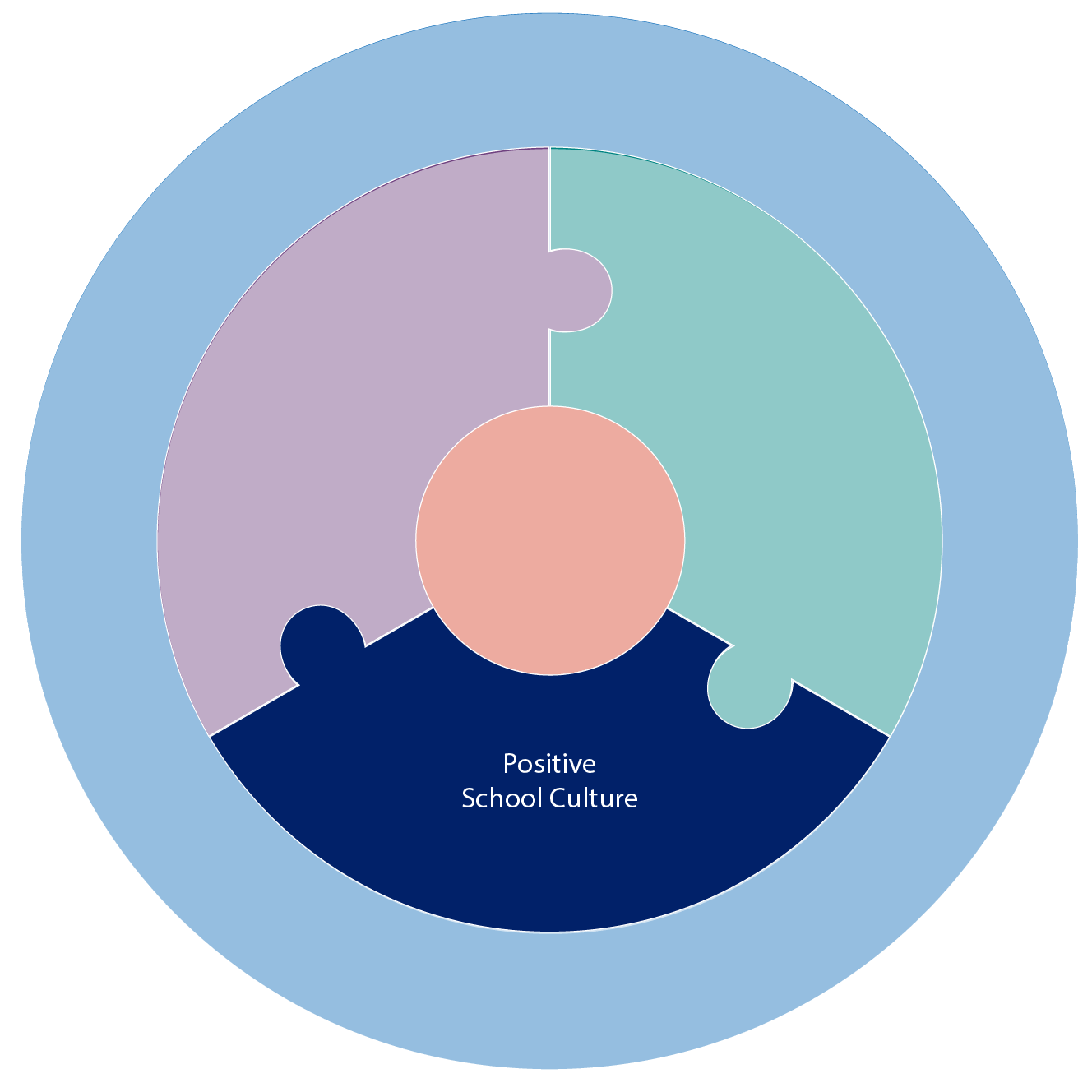Lever 3
POSITIVE SCHOOL CULTURE
Campus systems support positive school culture through explicit behavioral expectations, school-wide culture routines, proactive and responsive student support services, and involved families and communities.

District Commitments:
District commitments describe what local education agencies do to ensure that schools are set up for success.
-
The district provides campuses with best practice resources and tools for engaging families (i.e., translation services, parent/student surveys, online communication structures).
-
The district provides data systems to track pertinent school culture data (e.g. discipline referrals, attendance, campus climate).
-
The district provides campuses with access to external student support services.
-
The district ensures that campus buildings are well maintained, safe, and conducive to learning.
- District policies, practices, and support align with and promote positive school culture.
Essential Actions
Essential Actions describe what the most effective schools do to support powerful teaching and learning. The first essential action listed under the priority is foundational — schools should address first in continuous improvement efforts, as they provide the foundation upon which the other essential actions develop.
3.1
FOUNDATIONAL ESSENTIAL ACTION
Explicit school-wide behavioral expectations and culture routines
- Campus instructional leaders provide clear expectations, training and support so that teachers implement best practices for establishing and maintaining a productive classroom learning environment throughout the school.
- Staff implement clear school-wide procedures and provide opportunities for practice that ensure safe and efficient student transitions and gatherings.
- Campus leaders establish and ensure all staff and students understand a system of incentives and consequences and consistently implement the system with fidelity.
3.2
Proactive and responsive student support services
- The school has a campus-wide program to proactively teach mental health and wellness skills to students.
- School staff meets frequently to identify individual student needs and work together to support and monitor individual progress, behavior, and mental health needs.
- Students are provided with the support services (e.g., counseling, mentoring, external service referrals) that address their needs.
3.3
Involving families and community
- The campus creates an inclusive and welcoming environment that engages all families in critical aspects of student learning.
- Systems are in place to engage families on a regular basis about their child’s performance in a positive, constructive, and personalized way, including their child’s college and career preparation and postsecondary success.
- Multiple communication strategies with families are integrated into teacher roles and responsibilities.
- Family and community engagement and impact data are reviewed regularly, and plans are adapted as needed.

